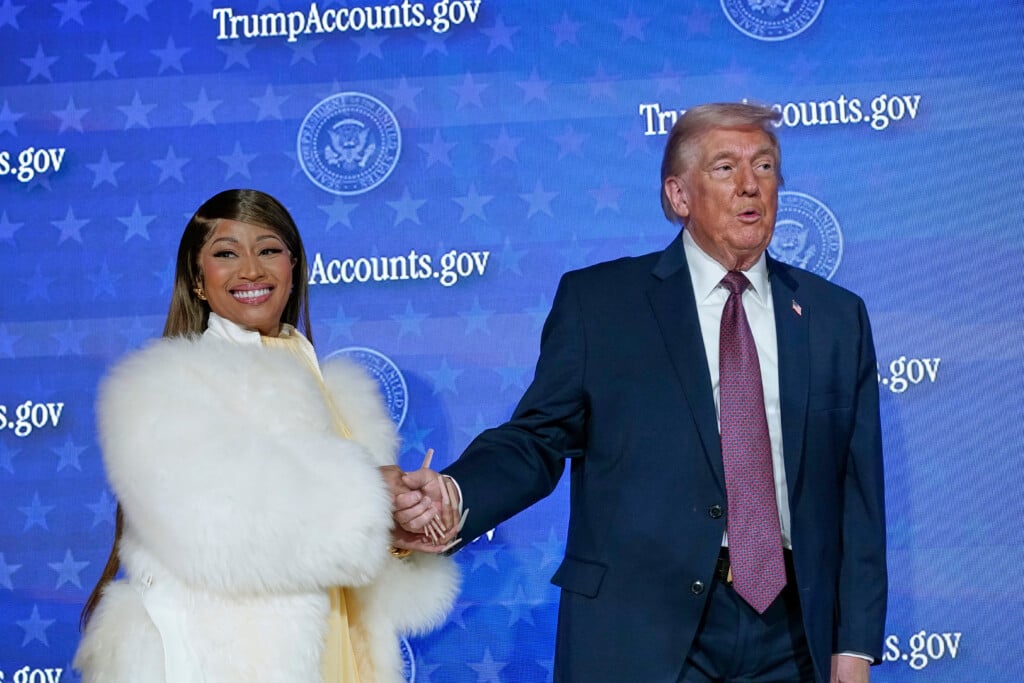Hawaii Says US Travel Ban Hurting State Economy

A security camera warning sign is seen at the Muslim Association of Hawaii in Honolulu on Thursday, Feb. 9, 2017. (AP Photo/Jennifer Sinco Kelleher)
The Latest on Hawaii’s legal effort challenging the revised U.S. travel ban (all times local):
11:15 a.m.
A religious leader’s mother-in-law living in Syria is playing a large part in Hawaii’s lawsuit challenging President Donald Trump’s travel ban.
Imam Ismail Elshikh of the Muslim Association of Hawaii is a plaintiff in the state’s challenge. He says the ban will prevent his Syrian mother-in-law from visiting him.
Hawaii Attorney General Douglas Chin says people like Elshikh’s mother-in-law have fewer rights than U.S. citizens.
But Chin says the imam is a U.S. citizen, has rights and would be prevented from seeing his mother-in-law.
The mother-in-law is awaiting approval of a visa to see her relatives in Hawaii.
Chin says the woman and others have become victims because of the ban’s “standardless set of waivers and exceptions that weren’t set by Congress.”
___
11 a.m.
Hawaii’s lawsuit challenging the travel ban focuses heavily on damage to the state’s economy and mainly tourism.
Hawaii Attorney General Douglas Chin says the tourism angle is unique because the state relies so heavily on visitors and Hawaii officials have a right to defend the economy.
Chin told reporters Thursday that the state has already been hurt by the proposed ban even though it doesn’t go into effect until March 16.
Chin says officials have already received of people are already less inclined to travel to the United States.
He also says people may fear traveling even within Hawaii because they would be forced to encounter a federal agent every time they get on a plane to visit a neighboring island.
___
10:55 a.m.
Hawaii Attorney General Douglas Chin says his state cannot stay silent on President Donald Trump’s travel ban because of Hawaii’s unique culture and history.
The new travel ban order comes just after the 75th anniversary of the Feb. 19, 1942, executive order by President Franklin Roosevelt that sent Japanese Americans were sent to internment camps during World War II.
That order was put in place after the Japanese attack on Pearl Harbor. Hawaii had an internment camp.
___
10:50 a.m.
Hawaii Attorney General Douglas Chin says the state is defending its tourism-linked economy as part of its lawsuit against President Donald Trump’s revised travel ban.
He said Thursday the state depends heavily on tourism, believes the revised ban would hurt the state’s economy and that Hawaii state officials have right to defend it.
Hawaii on Wednesday became the first state to sue the administration over its revised travel ban.
The executive order that goes into effect March 16 bars new visas for people from six predominantly Muslim countries and temporarily shuts down the U.S. refugee program. It doesn’t apply to travelers who already have visas.
Hawaii also says the order will harm its Muslim population and foreign students.
___
(Copyright 2017 The Associated Press. All rights reserved. This material may not be published, broadcast, rewritten or redistributed.)






